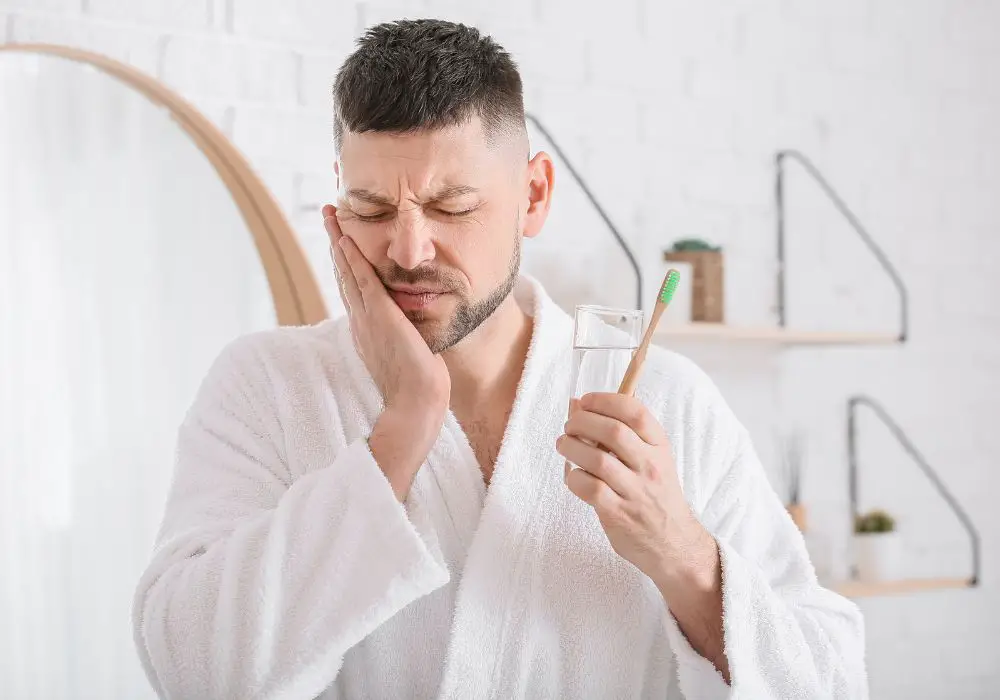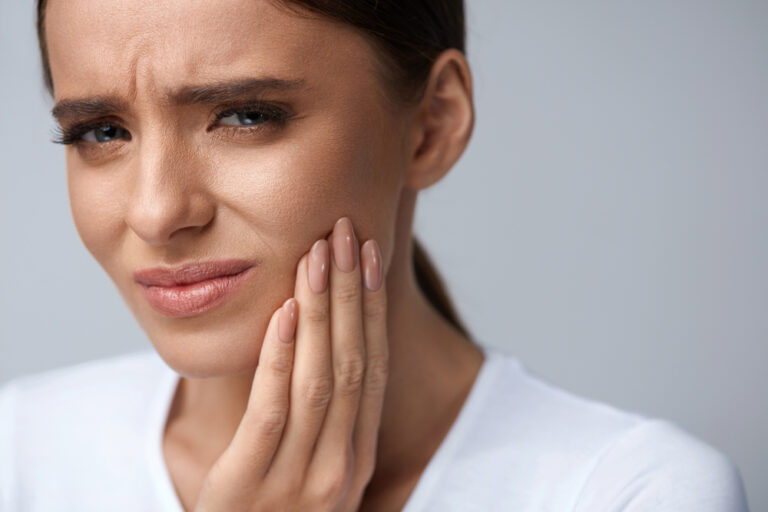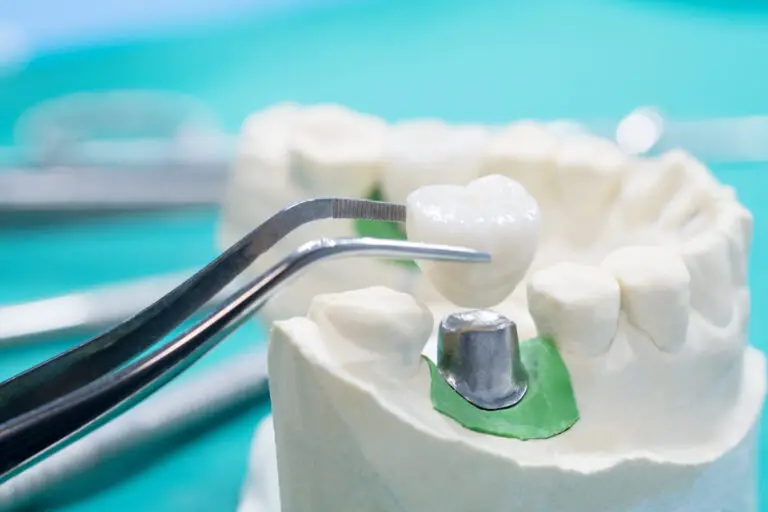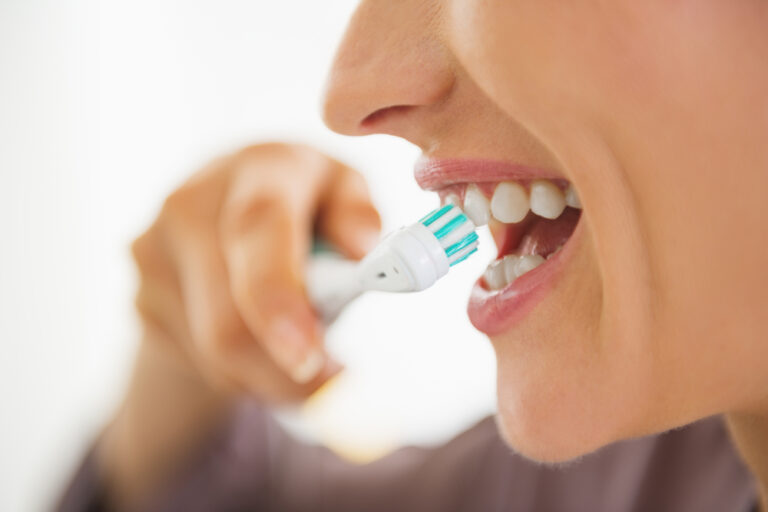Tooth sensitivity, also known as dentin hypersensitivity, is a common condition that affects millions of people. As the name suggests, it causes teeth to become sensitive and painful in response to hot, cold, sweet, or acidic foods and drinks.
Some individuals only experience tooth sensitivity occasionally, while for others it occurs more regularly. But what causes this intermittent sensitivity, and why do teeth hurt during some instances but not all the time? Keep reading to understand the potential reasons behind temporary versus persistent tooth sensitivity.
What is dentin hypersensitivity?
Before exploring why tooth sensitivity comes and goes, it helps to understand what causes dentin hypersensitivity in the first place.
Each tooth has multiple layers, including the hard external enamel, the dentin underneath, and the inner soft pulp containing nerves and blood vessels.
Dentin contains thousands of microscopic tubules that allow sensations from foods, drinks, and temperature changes to reach the inner tooth nerves. When the outer enamel layer wears down or erodes, the softer dentin underneath becomes exposed. External stimuli can then more easily reach the nerves inside the tubules, causing hypersensitivity and pain.
Tooth sensitivity occurs when the dentin loses its protective covering and becomes exposed to the oral environment. Things like eroded enamel, receding gums, tooth grinding, and dental procedures can lead to surfaces of exposed dentin and result in hypersensitivity.
What triggers sensitive teeth?
The most common triggers for dentin hypersensitivity include:
- Cold foods and drinks – Such as ice water, cold air, popsicles, ice cream
- Hot foods and drinks – Like freshly brewed coffee or tea
- Acidic foods and drinks – For example, citrus fruits, oranges, lemonade, vinegar
- Sugary foods and drinks – Such as candy, chocolate, baked goods
- Abrasive foods – Like chips, pretzels, popcorn
- Tooth brushing – Especially horizontal brushing motions
- Teeth whitening products – Strips, trays, whitening toothpastes
These triggers cause fluid shifts and movement within the open dentin tubules, stimulating the nerves and causing temporary pain. However, the pain tends to resolve once the stimulus is removed.
Other factors like grinding, chewing hard foods, and mouth trauma can also activate the exposed dentin and inner nerves.
What causes dentin exposure and sensitivity?

Now that we understand how external triggers provoke sensitive teeth, what causes dentin exposure in the first place? There are four main causes:
1. Gum recession
Gums provide a protective barrier between the crown of the tooth and root surfaces. When gums recede or pull away from the teeth, it leads to loss of gum tissue and exposed dentin on the tooth roots.
Gum recession can result from:
- Periodontal disease and infection
- Overly aggressive tooth brushing
- Heredity or thin gum biotype
- Smoking and tobacco use
- Clenching or grinding teeth
- Misaligned teeth or dental crowding
- Diabetes and hormonal changes
As gum recession worsens over time, teeth become more prone to sensitivity due to increasing areas of exposed roots.
2. Enamel erosion
The enamel is the strongest part of a tooth, helping shield the sensitive dentin underneath. But enamel can erode from:
- Dietary acids from citrus, vinegar, soda, wine
- Stomach acid from acid reflux or bulimia
- Abrasive foods like chips and pretzels
- Over-brushing and improper brushing technique
- Teeth grinding or clenching
- Chemical erosion from medications, mouth rinses
As enamel wears away, dentin becomes more visible. This allows external stimuli and triggers to reach the nerves more readily.
3. Tooth cracks and fractures
Cracks or fractures in the teeth compromise the protective enamel and dentin layers. As cracks deepen over time, they allow irritants to penetrate to the inner nerves and cause pain.
Cracks form as a result of:
- Trauma or injury to teeth
- Grinding and clenching teeth at night
- Large or defective dental fillings
- Improper bite alignment
4. Dental procedures
Many routine dental treatments remove small amounts of enamel and can lead to temporary sensitivity:
- Teeth cleanings
- Fillings and drilling
- Dental crowns or bridges
- Braces and teeth alignment
- Teeth whitening treatments
- Dental bonding and veneers
Why does tooth sensitivity fluctuate?

Now that we know the main causes, what accounts for tooth sensitivity that only occurs sometimes rather than all the time? There are several reasons sensitivity can fluctuate:
1. Changes in gum recession
Gum recession is a progressive condition that worsens slowly over months and years. As more gum tissue is lost, more root surfaces become exposed.
However, gum recession can also improve temporarily based on oral hygiene habits. Diligent flossing and brushing may help gums reattach slightly in some areas, reducing dentin exposure.
But lack of proper oral care will enable more gum recession. So as gum levels fluctuate, the degree of sensitivity changes as well.
2. Intermittent sensitivity triggers
Most people only encounter common sensitivity triggers like cold drinks, hot coffee, or sweet desserts periodically. Avoiding these items during periods of sensitivity provides relief.
Consuming more trigger foods and drinks during certain times increases the chance of encountering pain. While limiting them reduces sensitivity occurrences.
3. Fluctuating weather conditions
Changes in weather and atmospheric pressure can prompt fluid shifts within the microscopic dentin tubules.
When tubule fluid moves across the inner nerves, it can cause irritation and sensitivity, especially during colder months.
Studies show that teeth are often more sensitive during winter months.
4. Inconsistent oral hygiene habits
Practicing excellent oral hygiene helps protect and strengthen enamel. But inconsistent brushing and flossing leads to periods of weakened enamel.
Lapses in oral hygiene allow more erosion, exposure, and resulting sensitivity. While diligent habits reinforce the enamel layer and lessen sensitivity.
5. Dietary habits
Consuming acidic or abrasive foods and beverages during certain times weakens enamel integrity.
When enamel is weakened, teeth become more prone to sensitivity. Avoiding these items at intervals helps reduce dentin exposure.
6. Hormonal fluctuations
Hormonal changes during the menstrual cycle, pregnancy, and menopause can influence gum inflammation levels. More swollen and inflamed gums are linked to increased sensitivity.
Hormones can also impact pain thresholds in nerves. Estrogen drops during menstruation and menopause may heighten sensitivity.
7. Stress and anxiety
Stress and anxiety don’t directly cause tooth sensitivity. But studies show they can lower pain thresholds and tolerance throughout the body.
Times of high emotional stress may increase feelings of sensitivity due to these amplified pain pathways.
8. Recent dental procedures
As mentioned, some dental treatments inherently cause temporary sensitivity. But this sensitivity does not necessarily set in immediately after the procedure.
Following cleanings, fillings, or other work, the effects on enamel may take a few days or weeks to manifest as sensitivity.
How long does sensitive tooth pain last?

The duration of tooth sensitivity varies significantly based on the individual and cause:
- Sensitivity from hot/cold stimuli – Resolves within minutes once the stimulus is removed
- Sensitivity from dental procedures – Can last from a few days up to several weeks
- Weather-related sensitivity – Only occurs temporarily during weather changes
- Sensitivity from erosive acids or abrasives – May be chronic and recurring until diet is modified
- Sensitivity from gum recession – Tends to be prolonged unless treated through grafting
- Sensitivity from fractures or cracks – Typically persistent until repaired
While momentary sensitivity from a cold drink isn’t concerning, prolonged or chronic sensitivity should be addressed by your dentist. It may signify an underlying dental issue in need of treatment.
Tips to prevent transient tooth sensitivity
If you experience occasional tooth sensitivity, try these tips to prevent recurrences:
- Avoid sensitivity triggers – Refrain from very cold or hot foods/drinks during periods of sensitivity. Also limit acidic, sweet, and abrasive items.
- Use desensitizing toothpaste – Choose a toothpaste for sensitive teeth containing ingredients like potassium nitrate or stannous fluoride. These help block pain signals.
- Brush with gentle motions – Aggressive brushing can wear away enamel. Use light, circular motions instead.
- Rinse after acidic foods – Swish water in your mouth after consuming acidic items to neutralize pH.
- Drink with a straw – Sipping cold or hot drinks through a straw directs them away from teeth.
- Have professional cleanings – Regular dental cleanings and exams ensure your mouth remains healthy.
When to see a dentist for tooth sensitivity
Make an appointment with your dentist if you experience:
- Frequent recurrences of tooth sensitivity
- Lingering sensitivity that lasts more than 2-3 weeks
- Sensitivity accompanied by other symptoms like tooth pain, cracks, or gum swelling
- Sensitivity that interferes with eating, drinking, or oral hygiene
- Sudden sensitivity along with dental trauma or injury
Professional treatments for prolonged sensitivity
If sensitivity persists despite home care or OTC pastes, your dentist can provide professional treatments:
In-office desensitizing procedures
- Fluoride varnish – Fluoride applied directly onto teeth strengthens enamel and calms nerves.
- Oxalate treatment – An oxalic acid solution helps block the openings of dentin tubules.
- Laser therapy – Low-level lasers help depolarize nerves and reduce pain signals.
Dental restorations
- Fillings and sealants – Restore defects and cover exposed root surfaces.
- Crowns – Cover teeth and protect dentin from external factors.
Periodontal procedures
- Gum grafting surgery – Transplants gum tissue to areas of recession, covering exposed roots.
Other treatments
- Root canal – Removes inner nerves in severe cases to completely stop sensitivity.
- Occlusal adjustments – Realigns bite to prevent excessive grinding pressures.

Frequently asked questions about sensitive teeth
Why are my teeth only sensitive to cold?
Cold sensitivity is most common because abrupt cold (from drinks, air, ice cream) causes fluid changes in the microscopic dentin tubules that irritate nerves. However, some people experience hot sensitivity as well.
Is sensitive toothpaste a permanent solution?
Desensitizing toothpaste alleviates pain but is not a permanent fix. It must be used continually to maintain results. Ingredients like potassium nitrate only provide temporary relief by blocking pain signals.
Can sensitive teeth mean I have a cavity?
Possibly. Dental caries and decay can allow hot/cold stimuli to reach the tooth pulp and elicit sensitivity. However, sensitivity doesn’t always indicate a cavity is present. Checking with your dentist can determine if decay is a factor.
Why do my teeth hurt when I bite down?
Pain from biting pressure usually signifies an underlying dental issue like tooth cracks, defective fillings, or occlusal trauma from clenching. Visiting your dentist allows proper diagnosis. Night guards can also help in cases of grinding.
What toothpaste ingredients help with sensitivity?
Potassium nitrate, arginine, and stannous fluoride have clinical research supporting their efficacy for sensitive teeth. These ingredients help block pain transmission. Look for them in toothpastes labeled for dentin hypersensitivity.
Should I avoid acidic foods if I have sensitive teeth?
Limiting acidic foods is smart during periods of sensitivity, as the acid can provoke pain. But you don’t necessarily have to avoid them altogether. Other tips like drinking with a straw or rinsing after eating can help neutralize the acids.
In summary, temperature changes, diet, oral hygiene, gum health, enamel erosion, and weather conditions all contribute to fluctuating sensitivity. While momentary sensitivity is common, chronic sensitivity merits dental evaluation. Managing your home care routine alongside professional treatments can help address recurring tooth sensitivity.







